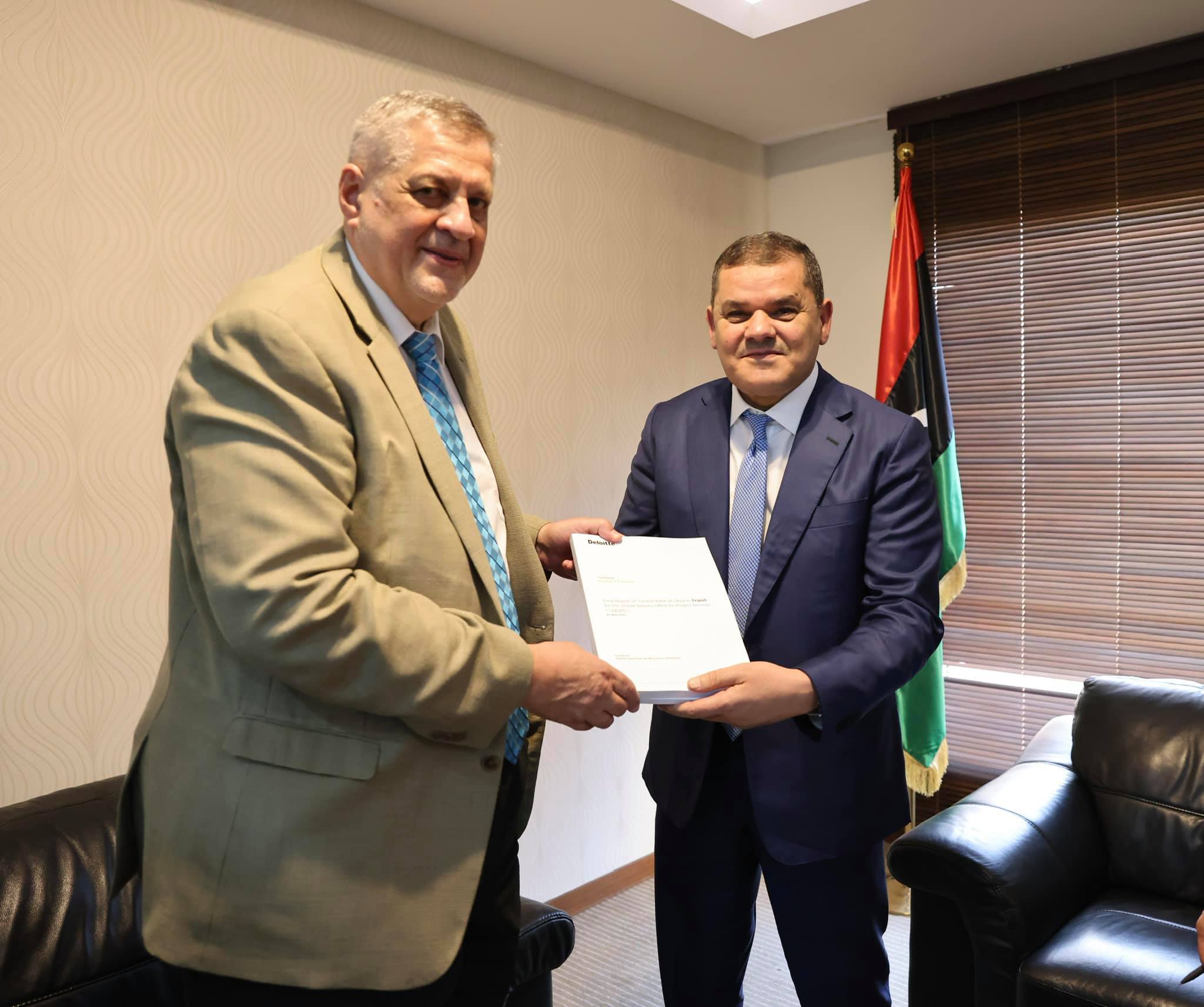By Sami Zaptia.

London, 8 July 2021:
The independent audit report of both branches of the Central Bank of Libya has been presented to the Libyan government at an official event today in Tripoli.
The report was requested by outgoing Libyan Prime Minister Faiez Serraj in July 2018 and was endorsed by UN Resolution 2434 in September 2018.
A preliminary review of the report was held between 2-5 April, involved a series of meetings between the United Nations Office for Project Services (UNOPS) and Deloitte International, the firm selected to conduct the financial review process, with representatives of the Libyan Presidency Council, Libya’s Attorney General’s Office and both branches of the Central Bank of Libya (CBL). The meetings reviewed and verified the preliminary results of the international financial review of the CBL.
The purpose of the audit is to restore integrity, transparency and confidence in the Libyan financial system and create the conditions for the unification of Libyan financial institutions.
Since the launch of the process in August 2020, Deloitte gathered information from both branches of the CBL. This information was combined with additional data from other official sources which were then verified through third party confirmations with the relevant commercial banks.
The final report will include recommendations on how to improve the integrity and unity of the banking system including, in particular, practical steps to unify the central bank and enhance accountability and transparency.
End to barrier for real CBL reunification?
It will be recalled that after the Tripoli ‘‘Libya Dawn’’ militia coup of 2014 Libya split politically, economically, and militarily. This split included the CBL.
However, despite political and military rapprochement last year and the selection of one government (the Government of National Unity – GNU), and the CBL holding its first board meeting since 2014 – both CBL branches accused the other of mismanagement and refused to reunify the institution.
It was agreed by both branches that an independent international auditing firm would conduct a review before full reunification.
It is to be seen if the audit report will indeed lead to the reunification of the CBL or if it was used as a delaying tactic or fig leaf to avoid reunification.
It must also be recalled that the Libyan parliament, the House of Representatives, had attempted to replace the current Governor of the CBL in September 2014 and in April 2015. However, he refused to vacate his position.
UNSMIL reviews preliminary CBL audit, final report expected this month | (libyaherald.com)
CBL independent audit going ahead: UNSMIL | (libyaherald.com)
Tripoli CBL claims it has no objection to its international audit – international veiled threat of sanctioning its CBL Governor | (libyaherald.com)
UN reopening tender process for audit of Libya’s two CBL branches | (libyaherald.com)
Libya’s Audit Bureau discusses audit of Central Banks of Libya with UN Experts Panel | (libyaherald.com)
UNSMIL’s Williams meets eastern CBL to talk reform, audit and reunification | (libyaherald.com)
CBL Governors meet in Tunis to agree international audit process | (libyaherald.com)
CBL Governor Saddek Elkaber sacked again | (libyaherald.com)









